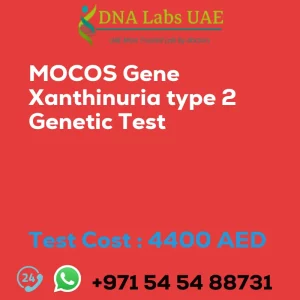GI GASTROINTESTINAL PANEL STOOL Test – DNA Labs UAE
Test Name: GI GASTROINTESTINAL PANEL STOOL Test
Components:
- Bacteria: Campylobacter, Clostridium difficile (Toxin A/B), Plesiomonas shigelloides, Salmonella, Vibrio-Vibrio cholerae, Yersinia enterocolitica, Diarrheagenic E. coli / Shigella, E.coli O 157, Enteroaggregative E. coli (EAEC), Enteropathogenic E. coli (EPEC), Enterotoxigenic E. coli (ETEC), Shigella/Enteroinvasive E. coli (EIEC), Shiga-like toxin-producing E. coli (STEC)
- Fungus: Cryptosporidium, Cyclospora cayetanensis
- Protozoa: Entamoeba histolytica, Giardia lamblia
- Viruses: Adenovirus F 40/41, Astrovirus, Norovirus GI/GII, Rotavirus A, Sapovirus
Price: 4680.0 AED
Sample Condition: Submit 1 mL (0.5 mL min.) stool in Cary-Blair medium OR 2 mL (1 mL min.) stool in a sterile screw capped container. Ship refrigerated. DO NOT FREEZE.
Report Delivery: Sample Daily by 1 pm; Report Same Day
Method: Film Array Multiplex PCR
Test type: Disorders of Gastrointestinal tract
Doctor: Gastroenterologist
Test Department:
Pre Test Information: No special preparation required
Test Details:
A GI (gastrointestinal) panel stool test is a diagnostic test used to detect and identify various pathogens and markers of gastrointestinal infections in a stool sample. The test is typically performed to determine the cause of symptoms such as diarrhea, abdominal pain, vomiting, and fever.
The GI panel stool test can simultaneously detect multiple pathogens, including bacteria, viruses, and parasites, that may be responsible for gastrointestinal infections. Some of the common pathogens that can be detected include Salmonella, Campylobacter, Shigella, E. coli, rotavirus, norovirus, and Giardia.
The test is performed by collecting a stool sample from the patient and sending it to a laboratory for analysis. The stool sample is then tested using molecular techniques, such as polymerase chain reaction (PCR), to identify the genetic material of the pathogens.
The results of the GI panel stool test can help healthcare providers determine the appropriate treatment and management for the patient. It can also help identify outbreaks of gastrointestinal infections and guide public health interventions.
It is important to note that the GI panel stool test is not a routine screening test and is typically ordered when there is a suspicion of a gastrointestinal infection based on the patient’s symptoms and medical history. The test may be recommended by a healthcare provider if the patient has persistent or severe gastrointestinal symptoms that are not improving with initial treatment.
| Test Name | GI GASTROINTESTINAL PANEL STOOL Test |
|---|---|
| Components | *22 pathogens detected Bacteria: *Campylobacter *Clostridium difficile (Toxin A/B) *Plesiomonas shigelloides *Salmonella *Vibrio-Vibrio cholerae *Yersinia enterocolitica *Diarrheagenic E. coli / Shigella *E.coli O 157 *Enteroaggregative E. coli (EAEC) *Enteropathogenic E. coli (EPEC) *Enterotoxigenic E. coli (ETEC) *Shigella/Enteroinvasive E. coli (EIEC) *Shiga-like toxin-producing E. coli (STEC)Fungus: *Cryptosporidium *Cyclospora cayetanensis Protozoa: *Entamoeba histolytica *Giardia lambliaViruses: *Adenovirus F 40/41 *Astrovirus *Norovirus GI/GII *Rotavirus A *Sapovirus |
| Price | 4680.0 AED |
| Sample Condition | Submit 1 mL (0.5 mL min.) stool in Cary-Blair medium OR 2 mL (1 mL min.) stool in a sterile screw capped container. Ship refrigerated. DO NOT FREEZE. |
| Report Delivery | Sample Daily by 1 pm; Report Same Day |
| Method | Film Array Multiplex PCR |
| Test type | Disorders of Gastrointestinal tract |
| Doctor | Gastroenterologist |
| Test Department: | |
| Pre Test Information | No special preparation required |
| Test Details | A GI (gastrointestinal) panel stool test is a diagnostic test used to detect and identify various pathogens and markers of gastrointestinal infections in a stool sample. The test is typically performed to determine the cause of symptoms such as diarrhea, abdominal pain, vomiting, and fever. The GI panel stool test can simultaneously detect multiple pathogens, including bacteria, viruses, and parasites, that may be responsible for gastrointestinal infections. Some of the common pathogens that can be detected include Salmonella, Campylobacter, Shigella, E. coli, rotavirus, norovirus, and Giardia. The test is performed by collecting a stool sample from the patient and sending it to a laboratory for analysis. The stool sample is then tested using molecular techniques, such as polymerase chain reaction (PCR), to identify the genetic material of the pathogens. The results of the GI panel stool test can help healthcare providers determine the appropriate treatment and management for the patient. It can also help identify outbreaks of gastrointestinal infections and guide public health interventions. It is important to note that the GI panel stool test is not a routine screening test and is typically ordered when there is a suspicion of a gastrointestinal infection based on the patient’s symptoms and medical history. The test may be recommended by a healthcare provider if the patient has persistent or severe gastrointestinal symptoms that are not improving with initial treatment. |







